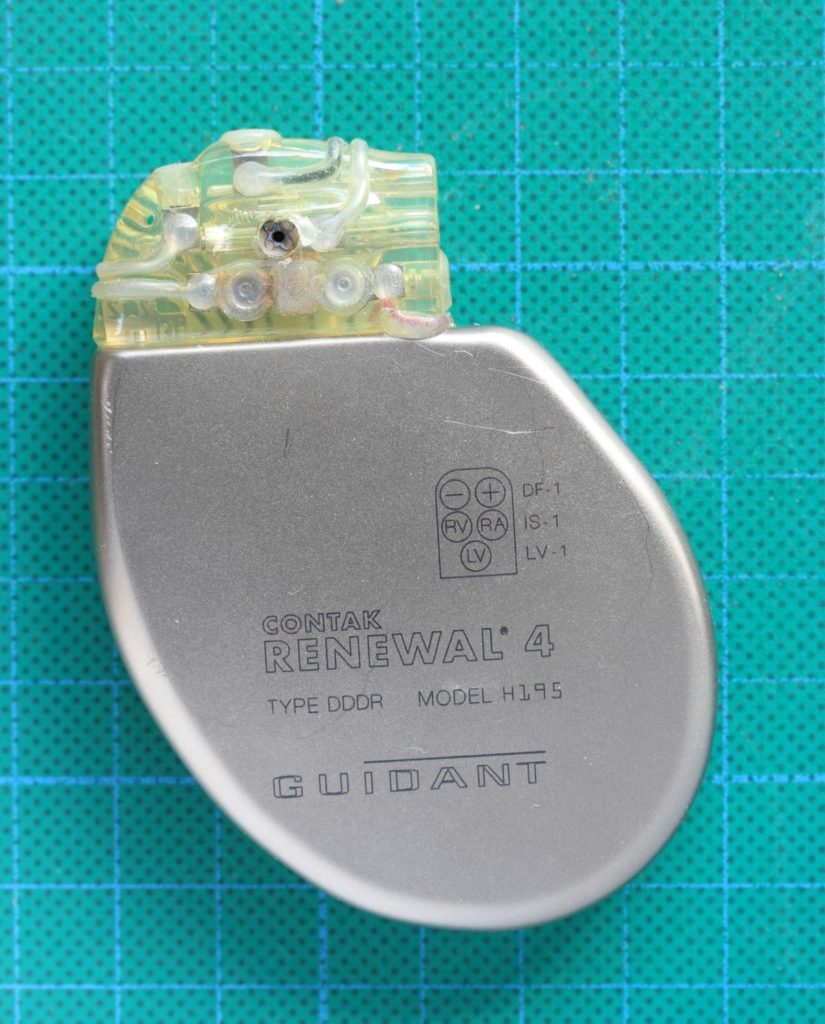New York Defective Medical Device Lawyers
When a defective medical device has caused injuries, you need to spend your time, energy, and focus on healing. The last thing you should be doing is worrying about a legal case—that is our job. We can help you gather information and evidence to present your claim and argue your legal points on your behalf. You should focus on recovering and getting back on your feet, if possible. The team of New York defective medical device lawyers at Halperin, Halperin & Weiskopf, PLLC. will handle the legal aspects of your situation for you. We focus on your case so you can focus on what really matters.

What is a Defective Medical Device?
There are circumstances where a medical device implant simply does not work for a variety of reasons. Perhaps the device does not agree with your body, or maybe your level of activity is too much for a particular device. These kinds of situations happen, but that may not mean the device itself is defective.
Legally speaking, there is no formal definition of a defective medical device. However, a defective medical device is usually faulty for some reason. The device may not work properly, or it may have been implanted incorrectly, for example. A device might be defective if the manufacturer did not appropriately warn you about a specific risk as well.
When this happens, the results can be devastating. You may need revision surgery, or it can affect other organs or other parts of the body. Instead of helping you as intended, the device may end up causing significantly more harm.
Some examples of medical devices that have triggered litigation in New York include:
- Transvaginal mesh
- Hip implants
- Knee implants
- Pacemakers
- Respiratory devices
- IVC blood clot filters
- Catheters
Any device can be defective; these are just a few examples. If the device actually harms you more than it helps, you might be dealing with a defective medical device.
Medical Device Defect Claims and Lawsuits
Lawsuits in New York that involve medical devices can be very complicated. They require an in-depth knowledge of the device that you used and why and how it harmed you. In some situations, it can be difficult to determine why a device is causing negative side effects.
Companies that manufacture medical devices invest thousands (if not millions) of dollars in research and development in a device before the Food and Drug Administration (FDA) approves it for sale to doctors and patients.
However, these companies cannot plan for everything. There may be problems with the device that the companies did not expect or anticipate. However, some medical device companies hide or fail to report situations where testing came back with negative results.
Battling a large company that has a team of experts can be difficult. However, Halperin, Halperin & Weiskopf, PLLC. has experts ready to help you with your case. We can arrange for medical professionals to review both your situation and the device at issue and provide helpful opinions as to what is happening to you and why. When you have someone with significant medical experience helping you, that makes your case even stronger.
What Kind of Results Can You Expect from a Defective Medical Device Lawsuit?
Every claim or lawsuit is different; it is difficult to predict what will happen in one case. The type of money damages that are available to you will depend on the extent of your injuries.
Lawsuits that focus on medical device defects in New York are designed to compensate you for the damages that you have suffered. Ideally, the funds that you get in a lawsuit will put you back in the place you were before the defective device harmed you.
Of course, no amount of money can make up for the pain and suffering that you, and often your family, must go through from additional medical procedures and long-term negative side effects and loss of function. Unfortunately, money is the only way the New York court system can address these types of losses.
You can often claim money damages for losses relating to:
- Medical expenses
- Lost wages or lost time away from work
- Loss of earning capacity in the future
- Pain and suffering
- Loss of consortium (loss of services to your family members)
In general, if you have a specific loss you have suffered because of a defective medical device, talk to a New York medical device lawyer about the situation. You might be able to add that type of loss to your claims in a defective medical device lawsuit.
Examples of Specific Defective Medical Device Claims
Some medical devices are well-known for having problems. Unfortunately, those problems sometimes only appear after the device is inside the body for some time. Below are just a few examples of currently known defective medical devices familiar to our defective medical device lawyers.
Metal Hip Replacements
Manufacturers designed metal hip replacements to be more durable compared to their counterparts made of other materials. However, an unanticipated side effect is metal poisoning due to the prolonged rubbing together of the socket joint against the rest of the device.
Cobalt toxicity and metallosis can lead to necrosis in certain parts of the body, which can be very painful. It can also cause long-term damage, including nerve damage and loss of function.
IVC Blood Clot Filters
Inferior vena cava (IVC) blood clot filters are meant to reduce the likelihood that a blood clot traveled from a blood vessel in the lower part of the body to the heart. These devices look like tiny whisks. They catch the blood clot in the wire arms and prevent it from further travel.
Medical professionals have linked these blood clot filters to various injuries and numerous deaths throughout the United States. The problem is often that the IVC gets loose and travels through the bloodstream. It may puncture a blood vessel or another organ, causing internal bleeding and other very serious health issues.
Guidant Defibrillator
A defibrillator is a device that is implanted into those who have heart disease that causes abnormal heart rhythms. The defibrillator will send a shock to the heart to restore the correct rhythm.
In 2005, the FDA recalled Guidant defibrillators because they were not or could not deliver shocks effectively. Essentially, they did not function as intended. The FDA issued other recall later as well. While the deaths related to this defect have been minimal, some patients lost consciousness when the device malfunctioned.
Statute of Limitations in New York for Defective Medical Devices
New York, like all states, has a specific deadline to file a defective medical device lawsuit. If you do not file your case within by the deadline, your case will be dismissed and you will lose your opportunity to recover damages.
This period to commence a defective medical device lawsuit is three years from the date of your injury. In defective medical device cases, this often means that it is three years from the date that your doctor implanted the device. However, if there is also a medical malpractice component to your case – for example if the doctor did not place the device properly – the deadline to file in order to preserve the medical malpractice claim is 2 ½ years from the date the device was implanted. In some instances, the deadline may not be calculated from the initial date of implantation if you did not start suffering health problems until later.
The defective medical device lawyers at Halperin, Halperin & Weiskopf, PLLC. can help you determine when you must file a lawsuit to be within the statute of limitations deadlines under New York law.
Talk to Our New York Defective Medical Device Lawyers Today
If you think your implanted medical device has caused you harm, you need to take action.
The team at Halperin, Halperin & Weiskopf, PLLC. can not only help you address the legal aspects of your claim, but we can also refer you to doctors who provide outstanding medical care to help you recover.
Contact our office for more information or to schedule a consultation: (212) 935-2600.
